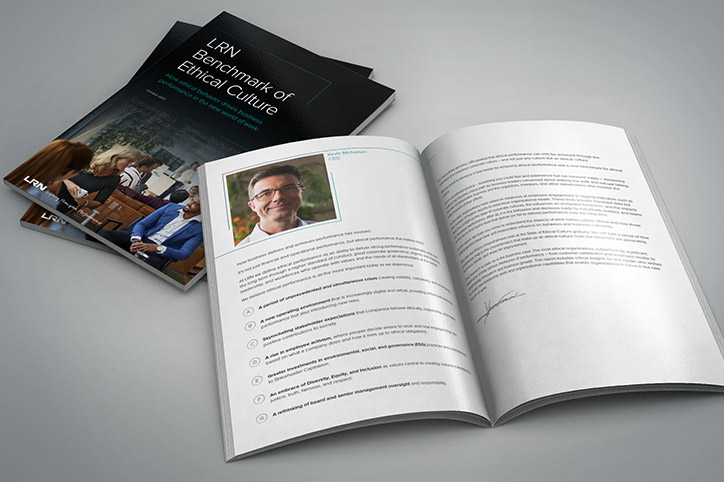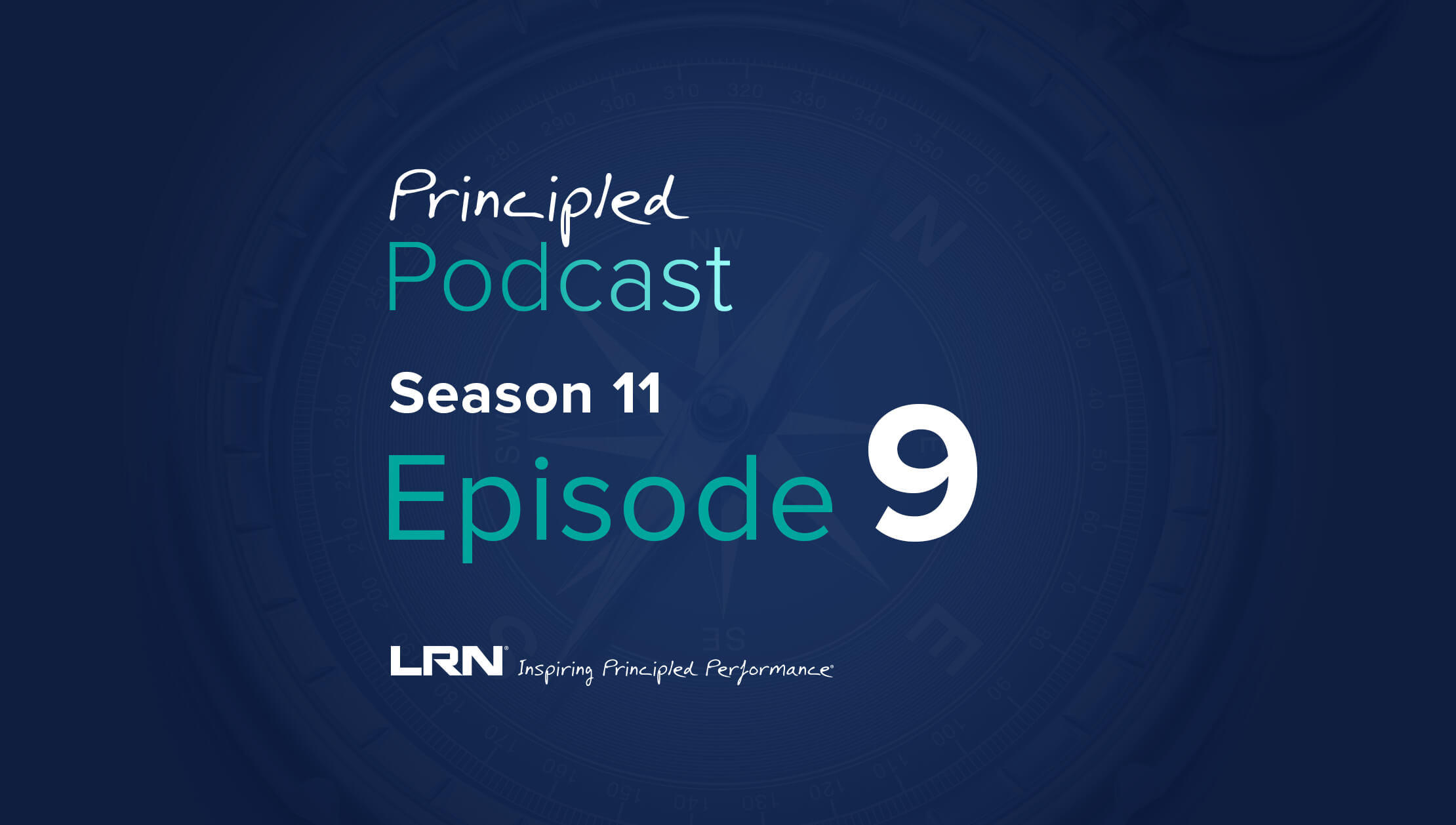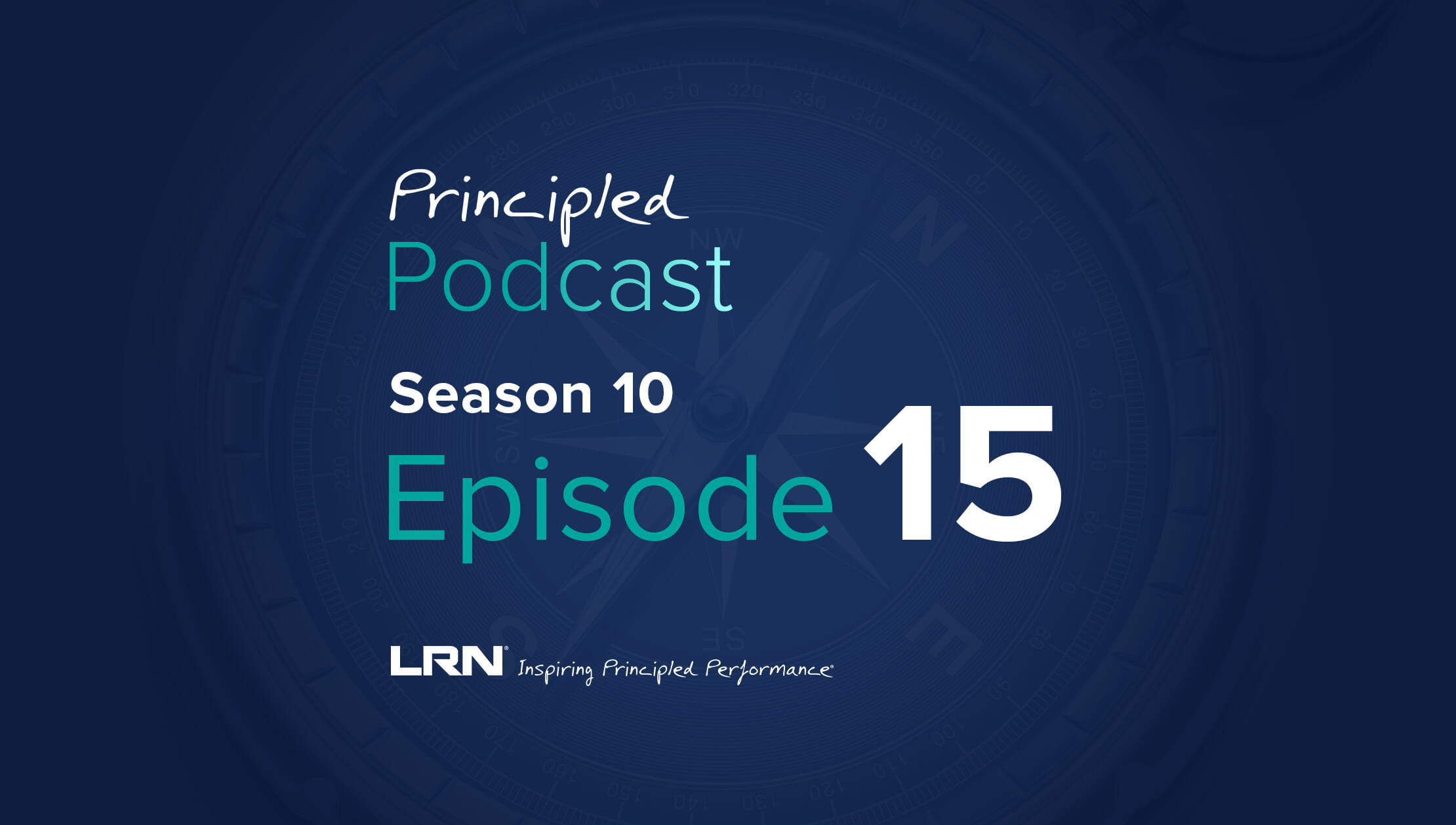How business defines and achieves performance has evolved.
It’s not just financial and operational performance, but ethical performance that matters most.
At LRN we define ethical performance as an ability to deliver strong performance sustainably and over the long term through a higher standard of conduct, good corporate governance, aligned and inspired leadership, and workforces who operate with values and the needs of all stakeholders at the center.
We believe ethical performance is all the more important today as we experience:
- A period of unprecedented and simultaneous crises creating volatility, complexity, and uncertainty.
- A new operating environment that is increasingly digital and virtual, providing enhanced business performance but also introducing new risks.
- Skyrocketing stakeholder expectations that companies behave ethically, responsibly, and make positive contributions to society.
- Greater investments in environmental, social, and governance (ESG) practices and commitments to Stakeholder Capitalism.
- A rise in employee activism, where people decide where to work and how engaged they are based on what a company does and how it lives up to ethical obligations.
- An embrace of Diversity, Equity, and Inclusion as values central to creating cultures committed to justice, truth, fairness, and respect.
- A rethinking of board and senior management oversight and responsibility.
For nearly three decades, LRN posited that ethical performance can only be achieved through the cultivation of a company’s corporate culture—and not just any culture but an ethical culture. We are proud to introduce today a new model for achieving ethical performance and a new benchmark for ethical culture. You will find both in the 2021 LRN Benchmark of Ethical Culture report.
Once considered visceral—something you could feel and experience but not measure easily—measuring culture has become critical for business leaders concerned about walking the walk and not just talking the talk of responsible business and the regulators, investors, and other stakeholders who monitor the effectiveness of their efforts.
In the past, organizations have relied on measures of employee engagement or lagging indicators such as the number of hotline reports to determine organizational health. These tools provide important data but lack true insight on the state of corporate cultures, the influences on workplace behaviors, and the impacts on business performance. After all, it is the behaviors and decisions made by individuals, leaders, and teams at the micro and macro level that deliver (or fail to deliver) performance over the long term.
In this report, we hope you come to understand the aspects of what makes culture ethical and how those characteristics have clear and measurable influence on behaviors and business outcomes. You will also find a comprehensive look at the State of Ethical Culture globally. We surveyed nearly 8,000 employees at all organizational levels across 17 industries in 14 countries. You will gain a sense of how companies map to the characteristics that make up an ethical culture; how real behaviors are generating business results; and areas for improvement.
The research is clear, as is the business case. The most ethical organizations outperform by significant measures across various measures of performance—from customer satisfaction and employee loyalty, to adaptability, innovation, and business growth. This report includes critical insights for any leader who wishes to build new leadership skills and organizational capabilities that enable organizations to thrive in the new world of work.
We invite you to start reading the LRN Benchmark of Ethical Culture report today and reflect on the impact you can make on the culture within your own organization. The report is free with registration. My colleagues at LRN are already talking about it on the Principled Podcast and watching the on-demand webinar discussion.



